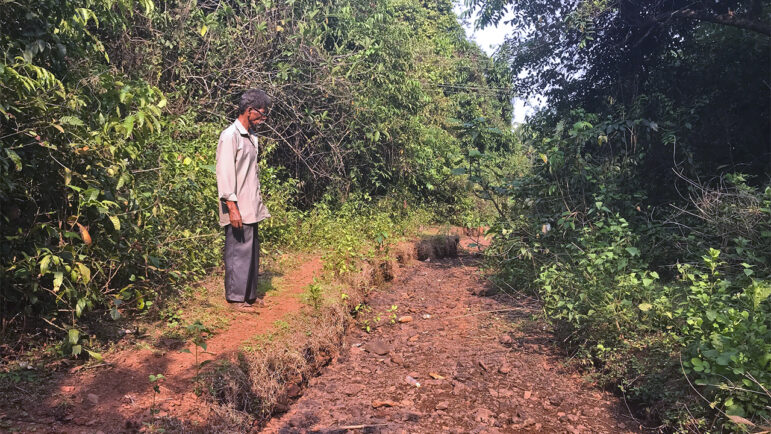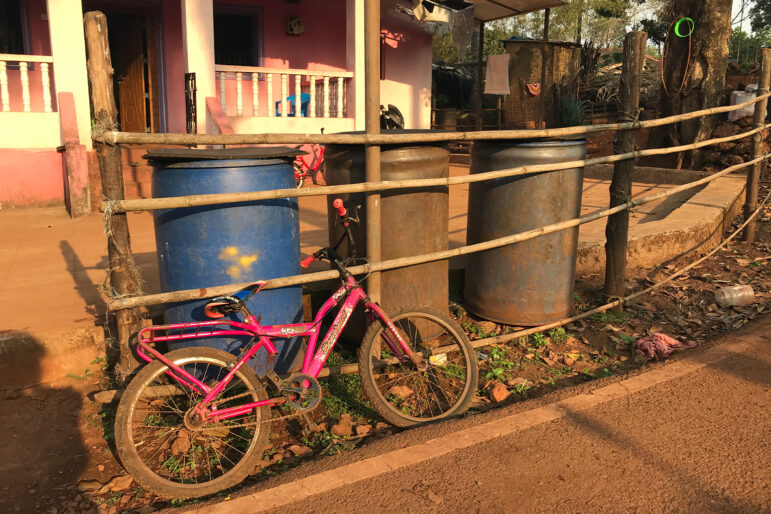
A villager stands beside a dry stream in Goa. Photo by Supriya Vohra.
In March 2021, Mongabay India published a story on how the village of Pissurlem in northeast Goa, which had plentiful water resources, had now become entirely dependent on government tankers.
Pissurlem is one of many villages affected by iron-ore mining in Goa’s eastern belt. The once self-sufficient, water-rich villages have been sucked dry. As a result, they are now completely dependent on an external, erratic supply of water by tankers and piped connections.
Via the story, journalist Supriya Vohra unravels the socioeconomic and environmental connections associated with mining. On the one hand, opencast iron ore mining reduces the groundwater table and causes surface water pollution. On the other, villages, like Pissurlem, are entirely dependent on tankers provided by the mining companies and the government, and piped water connections that do not reach every household.
“The linkage between the environment and people’s lives is something that Mongabay India keenly explores in its stories,” Mongabay India production editor Aditi Tandon, says. “This particular story was important, given that Goa has had a long and complicated history with mining and the consequences of mining are now showing up in the everyday lives of people. Despite being halted in the state, iron ore mining’s long term impacts are being felt in villages such as Pissurlem which were once self-sufficient, water-rich villages.”

Some residents of Pissurlem receive water from mining companies, while others from the Public Works Department. Photo by Supriya Vohra.
Real-world impact
Mongabay India’s coverage of how mining depleted the water bodies in Pissurlem had an immediate impact. According to Tandon, “After this story, the Goan state’s Public Works Department got in touch with journalist Supriya Vohra and informed her that they were building separate water pipelines that would reach the villages and ensure all households had access to water.”
Mongabay’s comprehensive coverage of the water crisis in rural Goa helped provide the government with the information necessary to make informed decisions. Ultimately, this resulted in a significant improvement in the quality of life of local communities, eliminating their need to rely on mining companies for their water supply.
Support independent environmental journalism
If you are interested in helping shed light on conservation stories such as this one, there are two excellent ways you can do so with Mongabay. First, consider making a donation, which directly helps us continue to produce high-impact journalism from nature’s frontline. Second, subscribe to Mongabay’s newsletter to get the latest environmental news delivered right to your inbox.
About Mongabay
Mongabay is a nonprofit environmental science and conservation news platform focused on providing cutting-edge independent journalism from nature’s frontline. We pride ourselves on producing reporting that has substantial, tangible impacts around the world.